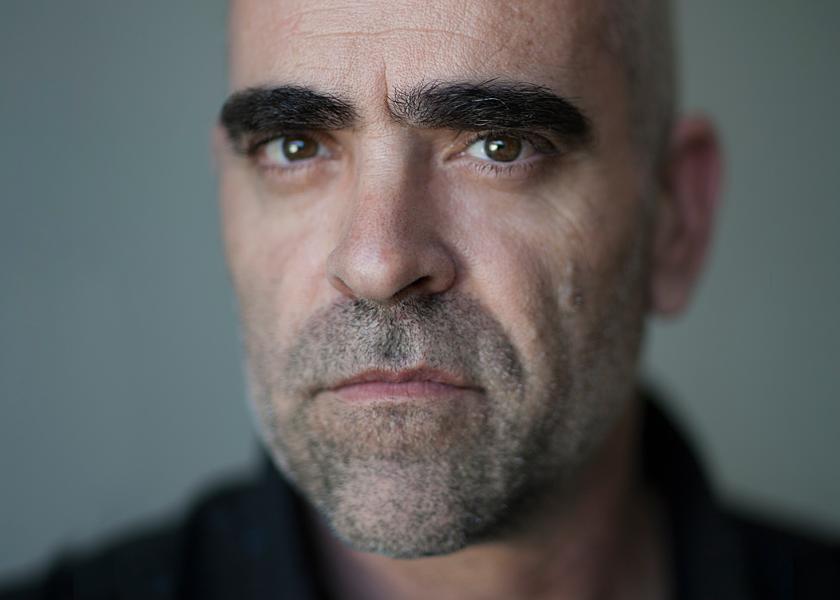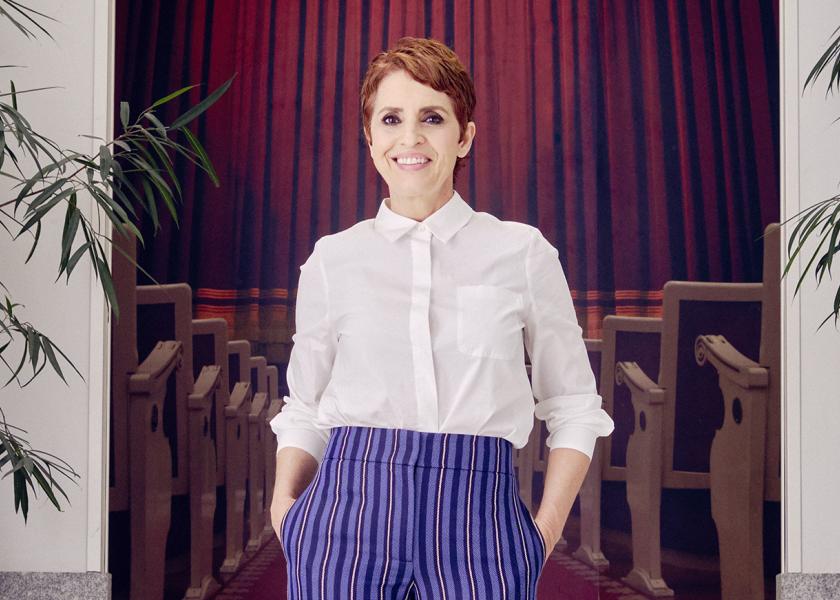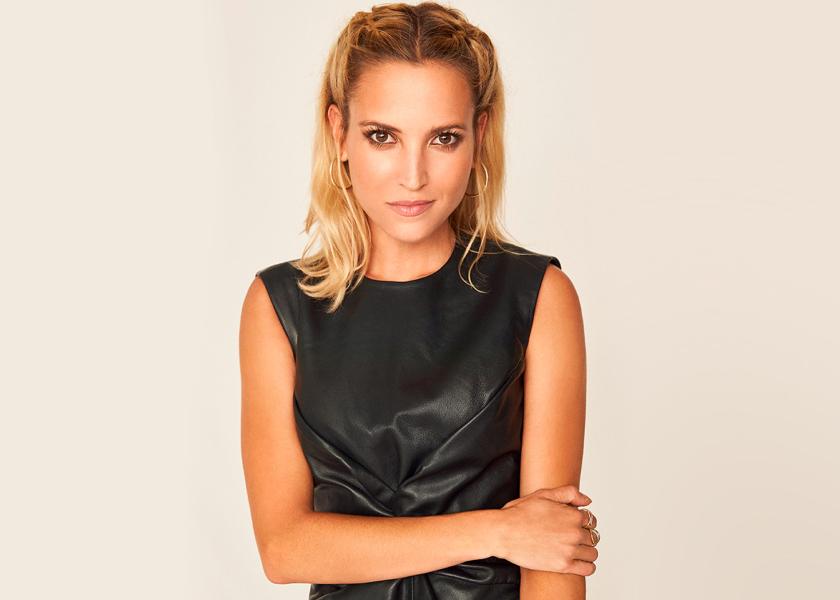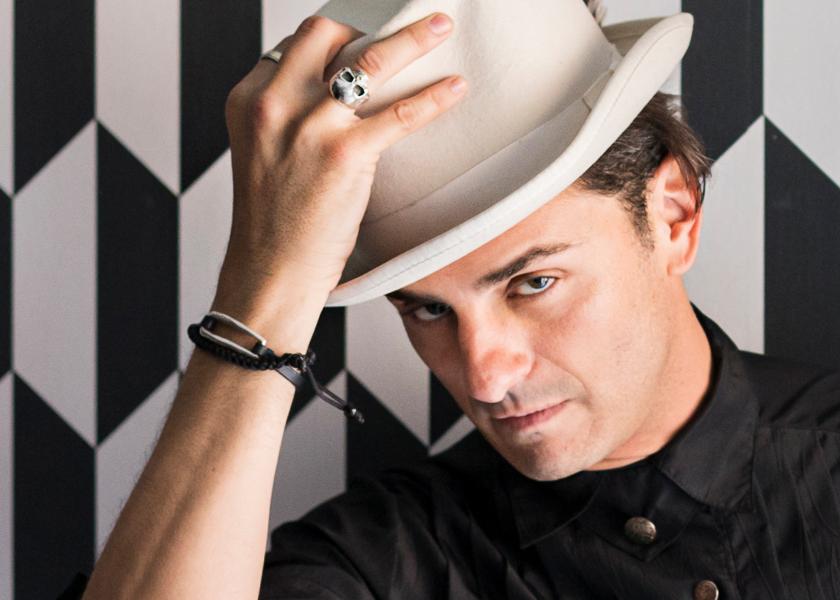Carmen Machi
“You Can Fear Being Jobless But Not Being Pigeonholed”
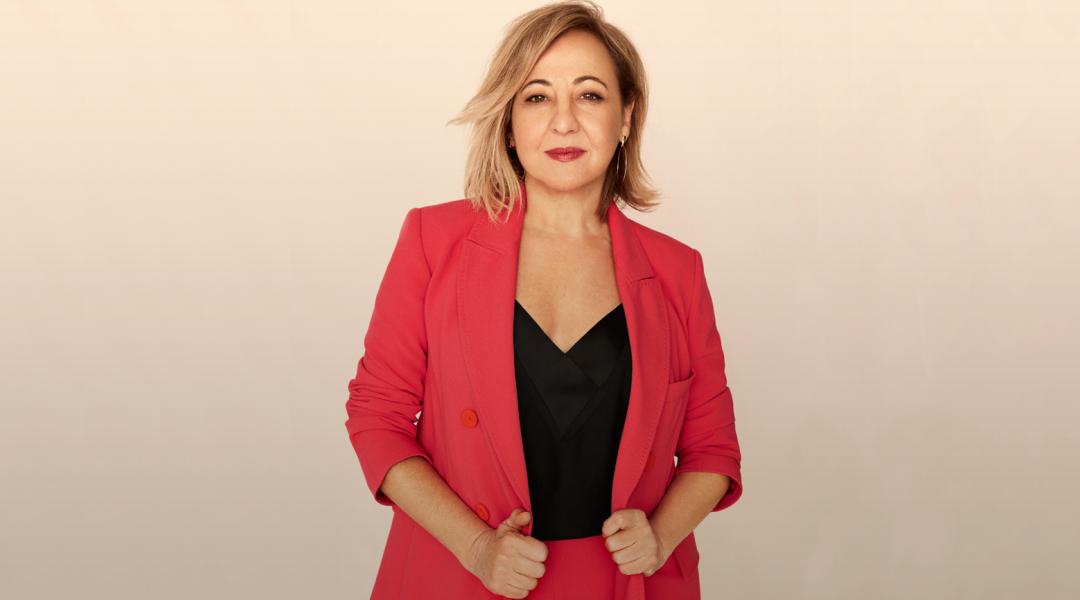
This year Carmen Machi is premiering major projects both in and out of Spain. Coming up is her role as a criminal suspect in 'Criminal', a thriller series that sees our most versatile actress showing once again she can deal with any role thrown at her.
Unstoppable is the epithet that best defines Carmen Machi this season. She has temporarily shelved comedy to put herself in the shoes of a criminal suspect in Criminal. Created by two veterans of television fiction —British George Kay (Killing Eve) and Jim Field Smith (The Wrong Mans)— the series is about to premiere with a revolutionary format—it is a German, British, French and Spanish co-production with each country producing three episodes.
The Spanish episodes are directed by Mariano Barroso, winner of three Goya Awards, and written by Alejandro Hernández (El Autor) and Manuel Martín Cuenca (Caníbal). Along with a cast lead by the Madrilenian actress, they are part of one of the most anticipated premieres this season.
But there is more. Whether it is claustrophobic thrillers, horror or even science fiction, Carmen Machi breaks molds once again by playing roles that have little to do with Aída, the character that catapulted her to fame among the general public. Talento a Bordo talked with her about all this on the occasion of the premiere of Criminal.
In this series you are cast along other Spanish actors and actresses such as Eduard Fernández, Álvaro Cervantes, Inma Cuesta and Emma Suárez, but also along great international actors (David Tennant, Nina Hoss, Nathalie Baye or Laurent Lucas). Is the so-called "international pressure" also present in acting?
Not so much in my case. I have lived this experience as an extraordinary, unique adventure. I was fascinated with working on an international project such as this. It’s a very different and bold series, and the fact that they counted on me for something this big makes me feel great, of course.
This is the first time you work under the direction of the current president of the Spanish Film Academy, Mariano Barroso (El día de mañana, Todas las mujeres, Éxtasis...). Do tell us about it.
The shooting was exceptional and very different from what I’m used to. Some takes were up to 40 minutes because Barroso often wanted to shoot extended takes, which aren’t that common in cinema. You feel a lot of vertigo but, at the same time, it allows you to keep the emotional flow. We spent countless hours locked in an interrogation room. It was wonderfully intense. Mariano is God! He is an actor’s director in every way. You can tell he comes from theatre. He loves working with us, which creates a reciprocal bond. We had such a great time!
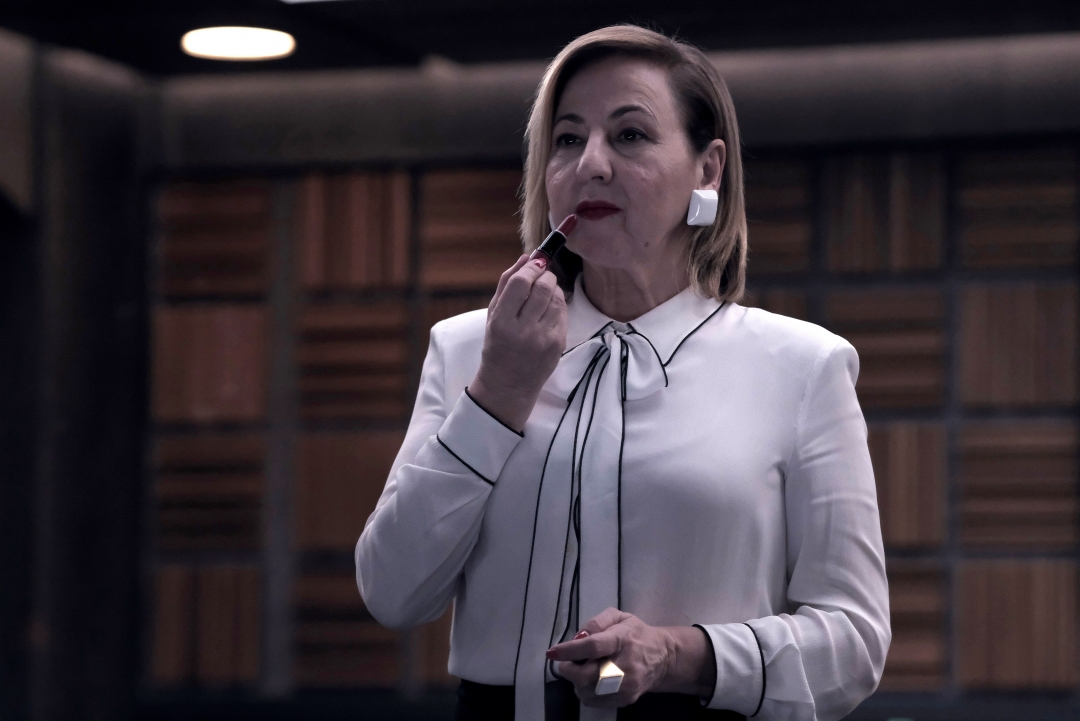
Carmen Machi in a still from 'Criminal' © Netflix
This project also shows Spanish fiction is in great shape, don't you think?
There’s a lot of potential in the Spanish audiovisual industry. Spanish cinema is more cherished abroad than it is here. It’s that kind of ignorance that prevents us from valuing what we have in our own family.
Many people used to your comedy roles in Aída, Spanish Affair o Que se mueran los feos may be surprised to see you as a criminal suspect in a crime series.
It’s funny because I’ve never felt this is a new register in my career. But every time I do something different than comedy, I’m asked the same question. People may have a very specific idea of my acting career, but I've been playing different roles all my life. I work a lot in theatre and hopping from drama to comedy to horror is natural to me. In fact, I tend to choose roles that have nothing to do with one another.
“The public may have a very specific idea of my acting career, but I've been playing different roles all my life”
Did you at some point feared that so many years playing Aida could pigeonhole you forever in comedy?
Not at all. I’ve never been afraid of being pigeonholed. Aída was a richly nuanced character with a lot of substance. You can fear being jobless but not being pigeonholed.
Online platforms are a launchpad for emerging actors. To what extent do you think these platforms are changing the industry?
As an actress, I feel that thanks to them I have more work and I’m offered more interesting projects; competitiveness among actors is healthier, too. Users have more content to choose from and actors have the chance to work in many different kinds of projects, in bolder film proposals. There’s incredible talent in Spain at all levels, and these platforms contribute to giving us greater visibility beyond our borders. As an actress, it’s a very exciting and cool kind of pressure, but what really turns me on is not the fact that I’m being watched abroad but the fact that a good job has been done.
Do you stay up late binge-watching series?
I don’t get that far, really. I’d rather appreciate the intensity and the depth of what I’m watching, so I usually restrain myself when I like something a lot so I can digest it slowly. If I watch five episodes in a row, I feel bad about myself. I think: "Be careful, baby, you have other things to do."
What do you like most about your character?
The evolution and the emotional arc of my character are fantastic, but I feel so much pity for her! Beyond the character, I really like the format and the dialectical struggle in the dialogues with the other characters. I really enjoy it when a script is well written, as is the case here.
“Aída was richly-nuanced character with a lot substance. I’ve never been afraid of being pigeonholed”
What kind of screenplays do you have a hard time accepting?
I usually reject roles in comedies. It’s very hard to write comedies and it’s something I take very seriously, I’m very finicky about it. I can’t stand comedy screenplays that take viewers for fools. It irritates me deeply! I only say yes to Nacho García Velilla (Aída, Perdiendo en norte, Villaviciosa de al lado, 7 vidas) even before reading the screenplay. When it comes to other genres, I trust writers more.
What would you be doing now if you hadn’t become an actress?
I’ve been an actress since I was a child. I’ve done nothing else and I don’t think I could do something different. Besides, I'm too lazy to learn another trade! If I were to choose, I would have liked to play piano, which I never studied, or ride horses, but I’m allergic to almost all animals, so…
Your resume gets updated really fast. Besides Criminal, there are the horror series 30 Monedas by Alex de la Iglesia, the first film by Leticia Dolera (Vida perfecta) and Las mil vidas, Marina Seresesky’s upcoming film. Any more projects in the pipeline?
I will soon start a project with director Juan Cavestany (Urtain, El Traje) alongside Pepón Nieto. It’s a very cool and peculiar story written by Cavestany. I can say nothing about other projects because I haven’t signed them yet, and it’s not because they might get cancelled, it’s just that if they aren’t signed, they don’t exist to me.
